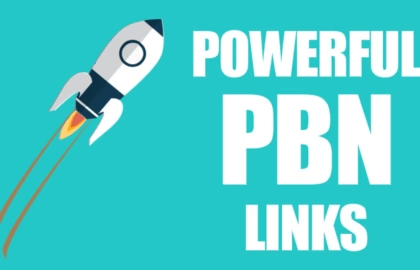Google Rank refers to the position a web page holds in the search engine results pages (SERPs) for a specific keyword or query. The higher your page ranks, the more visible it is. And in today’s digital world, visibility means everything.
Why Google Rank Matters for Every Website
Impact on Traffic
Ever heard the joke that the best place to hide a dead body is on page 2 of Google? That’s because most people never scroll past the first few results. If you’re not in the top 3, your chances of getting clicks drop dramatically.
Influence on Brand Authority
High Google rankings are often equated with trust. If your site shows up first, users are more likely to think you’re a leader in your niche—even if you’re just getting started.
Conversion and Revenue Implications
More clicks mean more leads, and more leads mean more money. Ranking high can directly affect your business’s bottom line. It’s not just about traffic—it’s about targeted, high-converting traffic.
How Google Rank Works
Crawling and Indexing
First, Google sends out bots (called crawlers) to scan your website. They check your content, structure, and code. Then, Google indexes that data—think of it like putting it in a massive library.
Algorithms That Determine Rank
Once indexed, Google’s algorithm goes to work. It considers hundreds of factors to decide where your page should appear. Some of the big ones? Relevance, authority, and user experience.
Role of Relevance and Authority
If your content isn’t relevant to the search query, you won’t rank. Likewise, if you don’t have authority (via backlinks, expertise, etc.), you’ll be outranked by more credible sources.
Top Google Ranking Factors in 2025
Content Quality and Depth
Google loves content that is original, informative, and valuable. Gone are the days of keyword stuffing. Now it’s all about solving the searcher’s problem with depth and clarity.
Backlinks and Domain Authority
Links from other sites act like votes of confidence. The more high-quality backlinks you have, the better your domain authority—and the higher your rankings.
Page Experience and Core Web Vitals
Google now looks at user experience metrics like load speed, interactivity, and visual stability. Sites that provide a smooth experience get rewarded.
Mobile-Friendliness
More than half of all traffic comes from mobile. If your site isn’t optimized for smartphones, you’re losing rank and visitors.
HTTPS Security
A secure website (with HTTPS) is a must. Google flat-out favors secure websites and marks non-secure ones as dangerous.
On-Page SEO Tactics to Boost Google Rank
Keyword Research and Optimization
Know what your audience is searching for and optimize your pages accordingly. But be natural—don’t force keywords where they don’t belong.
Using Meta Tags and Headers
Craft compelling meta titles and descriptions. Use H1, H2, and H3 tags to structure your content—it helps both users and Google understand your page.
Internal Linking Strategies
Linking to other pages on your site boosts navigation and helps Google crawl your site more effectively.
Off-Page SEO Techniques
Building High-Quality Backlinks
Guest posts, HARO (Help a Reporter Out), and strategic outreach are solid ways to get backlinks that boost your authority.
Guest Posting and Outreach
Posting on reputable blogs not only drives traffic but builds your SEO juice. It’s a win-win.
Social Signals and Brand Mentions
While not direct ranking factors, social shares and mentions indicate popularity and relevance—two things Google likes.
Technical SEO Essentials
Site Speed Optimization
A slow website kills rankings and user experience. Compress images, leverage caching, and use a good host.
Fixing Crawl Errors
Google Search Console can show you errors that stop Google from crawling your site. Fix them fast to keep your rankings safe.
Structured Data Markup
This is like giving Google a cheat sheet. Schema markup tells the search engine exactly what your content is about, which can lead to rich snippets.
How Google Rank is Measured
PageRank Algorithm
This original Google formula looks at the quantity and quality of backlinks to measure a page’s importance.
SERP Positioning
Ranking #1 in the SERP isn’t just an ego boost—it’s a money-making machine. SERP position is the most visible and valuable metric.
Ranking Tools and Metrics
Use tools like Ahrefs, Moz, and SEMrush to monitor rankings, track changes, and find optimization opportunities.
Tools to Track and Improve Google Rank
Google Search Console
A must-have. It shows your average position, click-through rates, and any technical issues affecting performance.
SEMrush / Ahrefs / Moz
These premium tools give deep insights into rankings, competition, and keyword opportunities.
SERP Tracking Tools
There are specialized tools that let you track your keyword positions daily. Handy for SEO agencies and serious bloggers.
Common Google Rank Myths Debunked
“More Pages = Higher Rank”
Quality > Quantity. Having 100 thin pages won’t help—Google prefers a few comprehensive, well-written ones.
“Keywords Are Dead”
Nope. Keywords still matter—they just have to be used naturally and in context.
“Backlinks Don’t Matter Anymore”
Wrong again. Backlinks are still one of the top 3 ranking factors. The key is quality over quantity.
Penalties and Drops in Google Rank
What Causes a Drop
Duplicate content, spammy backlinks, keyword stuffing, or poor user experience can all trigger a drop.
How to Recover from a Penalty
Audit your site, disavow bad links, improve your content, and submit a reconsideration request if needed.
Google Algorithm Updates to Watch Out For
Panda, Penguin, and Hummingbird
Each of these targeted specific ranking manipulations—thin content, link schemes, and better language understanding.
BERT and MUM
These updates help Google understand context better than ever before. It’s all about natural language.
Core Updates and Their Impact
Google releases broad core updates multiple times a year. These can shake up rankings across industries.
Local SEO and Google Rank
Google My Business Optimization
Claim and optimize your GMB listing. Add photos, respond to reviews, and keep info updated.
Local Citations and Reviews
Get listed in local directories and encourage happy customers to leave reviews—both affect your local rank.
How Long Does It Take to Rank on Google?
Short answer? It depends.
New pages can take weeks or even months to rank, depending on the competition, your domain authority, and your SEO game. There’s no overnight success, but consistent effort pays off.
Future of Google Ranking – Trends and Predictions
- AI-generated content will need more human oversight
- Voice search and conversational queries will continue to rise
- Google will place even more importance on user experience
- E-E-A-T (Experience, Expertise, Authoritativeness, Trustworthiness) will be non-negotiable
- Personalized search results based on location, device, and behavior will become even more prevalent
Conclusion
Ranking on Google is no longer about tricks or hacks—it’s about delivering real value to real users. By focusing on quality content, technical health, and authoritative backlinks, you can climb the SERPs and stay there.
Don’t chase the algorithm. Serve the user, and the rankings will follow.
FAQs
1. What is a good Google rank?
A good rank is typically within the top 3 positions on the first page. The #1 spot gets around 30% of all clicks!
2. How often does Google update rankings?
Minor updates happen daily, but major core updates occur several times a year and can significantly impact rankings.
3. Can I rank #1 without backlinks?
Possible, but extremely rare. In competitive niches, backlinks are essential for top rankings.
4. How do I check my Google rank?
Use tools like Google Search Console, Ahrefs, or SEMrush to track keyword rankings and visibility.
5. What hurts your Google ranking the most?
Thin content, slow loading times, spammy backlinks, and poor user experience can drastically lower your rank.






